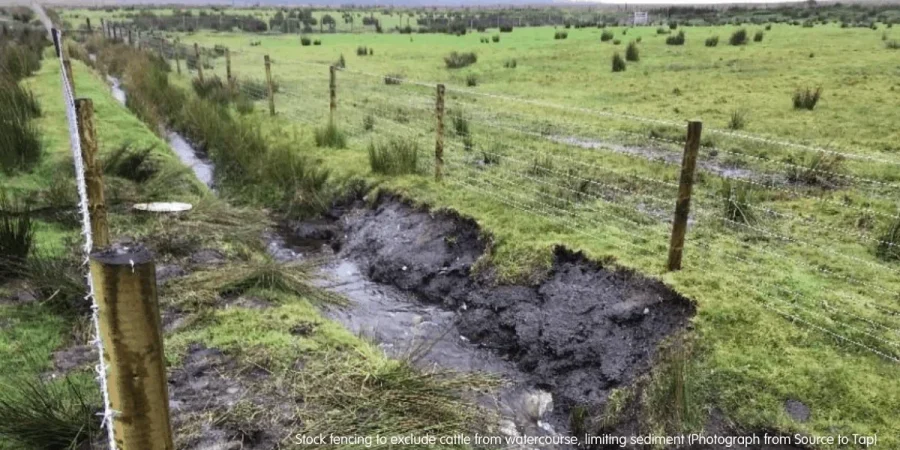Sustainable solutions for the protection of rivers and lakes
Source to Tap is an innovative and exciting, cross-border partnership project. It focuses on the River Erne and the River Derg catchments which cross the border between Ireland and Northern Ireland. It aims to develop sustainable, catchment-scale solutions for the protection of rivers and lakes, which are the main sources of our shared drinking water.
Empowering people through learning and outreach
Source to Tap will deliver a learning and outreach programme. This will be targeted at informing and empowering the public about their role in protecting our clean and healthy freshwater environment. Source to Tap will pilot best-practice forestry and peatland land management measures. It will deliver an Agricultural Land Incentive Scheme focused on changing land management practices for the protection of our water. These best practice measures will be bought together to form a Sustainable Catchment Area Management Plan (known as a SCAMP), so what is learned, and what is successful, can be replicated in other drinking water catchments in Ireland, the UK and beyond.
The project runs from 2017 to 2022. It is funded by the European Union’s INTERREG VA Programme, the Department for Agriculture, Environment and Rural Affairs (DAERA) in Northern Ireland, and the Department for Housing, Planning and Local Government (DHPLG) in Ireland. It is managed by the Special EU Programmes Body (SEUPB).
Protecting our fresh water drinking supplies
The River Erne catchment (covering 4374km2) and River Derg catchment (covering 369km2) are significant cross-border source areas for shared public drinking water supply between Ireland and Northern Ireland. They have been chosen because risks to these drinking water sources have been identified in both countries. The risks identified arise because ‘raw water’ abstracted from watercourses (rivers, lakes and streams) are often contaminated with herbicides, organic colour and sediments. These can enter the water source from various activities, such as agriculture, forestry and industry.
These contaminants must be removed in Water Treatment Works/Plants (WTWs/WTPs) to produce drinking water that meets the standards set out in the EU Drinking Water Regulations. It has been shown in the United Kingdom that it is more cost effective to reduce contaminants in run-off from the land through catchment-scale land management rather than building costly treatment solutions at the Water Treatment Plant.
Environmental, social and economic benefits
There are also added benefits to preventing water quality impacts at source, including improving water quality throughout the river system for wildlife and for recreation provision, bringing not just environmental, but also social and economic benefits.
Source to Tap will promote knowledge of our shared catchments and the value of a clean freshwater environment through:
- Working with schools and the local community to highlight the important connection between our rivers and lakes and what comes out of the tap;
- Helping farmers to adopt sustainable land management practices that help reduce herbicide residue and soil escaping from the land into rivers, through the implementation of a cross-border Land Incentive Scheme (LIS);
- Trialling various mitigation measures to reduce soil erosion and sediment run-off to rivers and lakes from forestry activity;
- Restoring an area of previously forested peatland to improve the health of the bog and reduce soil run-off to rivers and lakes; and
- Citizen science and volunteering opportunities that encourage people to get involved in protecting and improving rivers and lakes, that are the sources of our drinking water and home to our precious wildlife.
Learn more about what Northern Ireland is doing to become "Nature Positive" and combat biodiversity decline
The Northern Ireland Environment Agency (NIEA) is one of 5 UK statutory nature agencies to produce a joint Nature Positive 2030 Report, published on 22nd September 2021.
The Nature Positive 2030 Report sets out how the UK can meet its commitments in the Leaders’ Pledge for Nature, and ensure that nature’s recovery plays a critical role in our path to Net Zero.
Multi-award winning author and naturalist from Northern Ireland, Dara McAnulty explains why we need to act now to tackle biodiversity loss and climate change.



